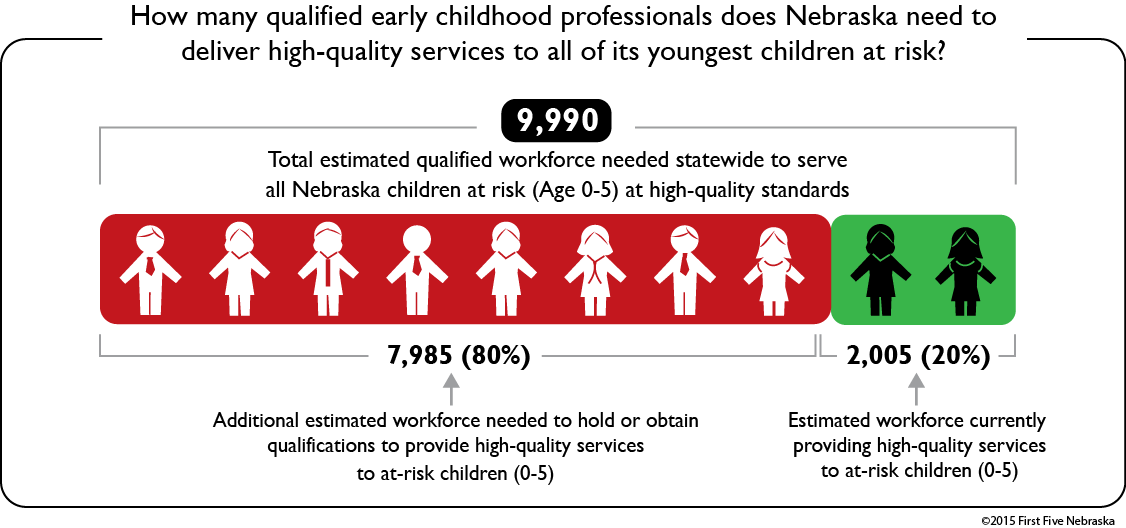When it comes to putting young children on the path to success, not just any kind of early experiences will do—particularly when it concerns children who face potentially significant risk factors to their cognitive and character development. Children need consistently stimulating, supportive and nurturing environments and interactions in the earliest years, or risk falling behind their peers well before they even approach entry into the K-12 system as preschoolers. Simply put, the quality of children’s earliest experiences matters.
This is why it is particularly troubling that so few of Nebraska’s infants and toddlers at risk—only about 7 percent—participate in early childhood programs that meet verifiable high-quality standards. It’s no less troubling that Nebraska currently has only about 20 percent of the overall qualified early childhood workforce needed to reach our at-risk children ages 0 to 5 with high-quality services. Nebraska is faced with the challenge of increasing the caliber of programs serving our youngest, most vulnerable children, as well as enabling more new and existing early childhood professionals to meet the qualifications these programs demand. That challenge is even more significant in a fiscal environment where there are simply not enough resources to go around.

With LB547, however, Nebraska is poised to innovate the way we address the developmental needs of our state’s infants and toddlers at risk. This bill enables school districts and private child care providers to collaborate with one another for the first time through the framework of the groundbreaking Sixpence Early Learning Fund. It also opens the door for more child care providers to participate in Nebraska’s Step Up to Quality program, giving them access to the resources and incentives they need to grow the caliber of their programs and personnel. Best of all, it accomplishes these goals by utilizing federal dollars already earmarked for quality improvement of early childhood programs, minimizing the overall fiscal impact on our state.

This partnership between Sixpence and Step Up to Quality means that more at-risk children will benefit from early care and education programs that meet the rigorous, high-quality standards known to narrow the achievement gap. At the same time, it enables us to meaningfully address the professional development of new and existing early childhood workers, encouraging the proliferation of qualified, highly skilled early educators throughout the state.
Is LB547 the key to reaching all 32,000 of Nebraska’s at-risk infants and toddlers with high-quality services and filling out the gaps in our qualified early childhood workforce? No single legislative measure, however forward-thinking, can do that. But it’s exactly the kind of strategic, innovative approach we need to bring to the problem so Nebraska can continue to make the best use of its available resources and systems, and continue to build on its successes in the years ahead.


